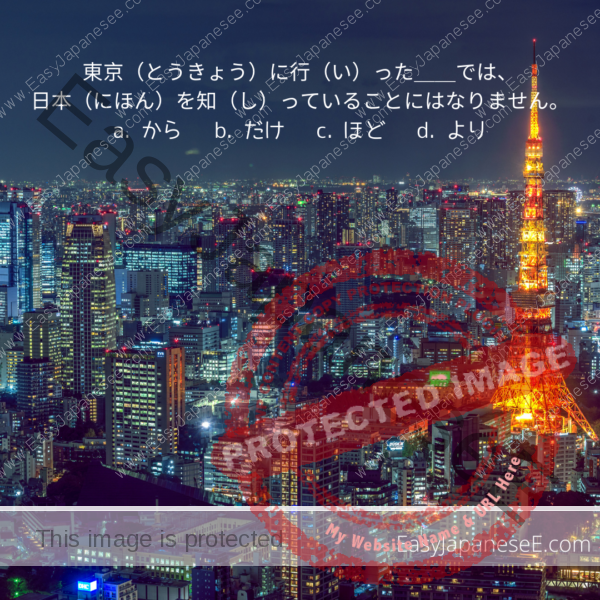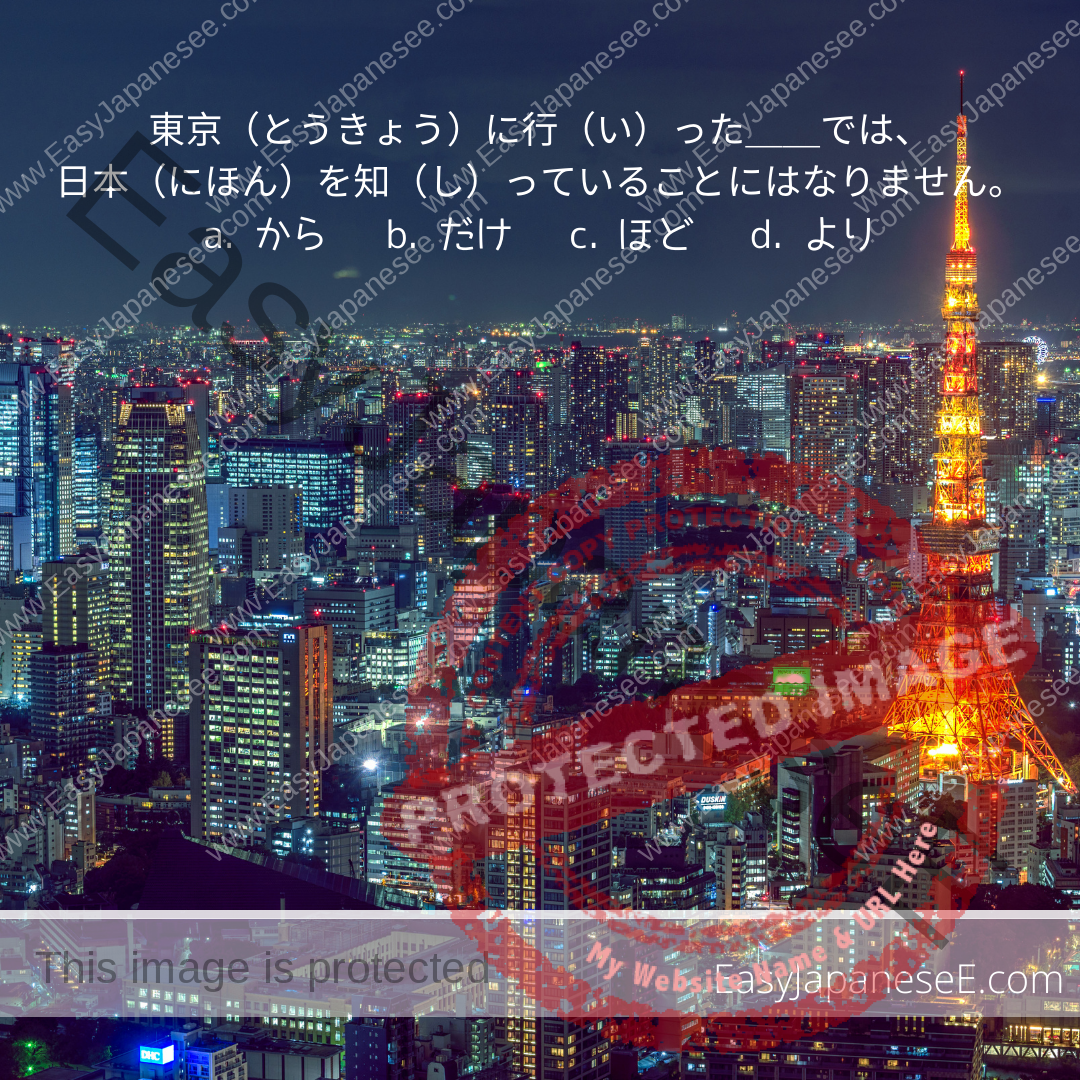
Today’s Grammar Point: ~だけでは…ない
~だけでは…ない is an expression for saying ~ is not sufficient enough to get an expected result. A potential (form) verb is often used in the latter half. For casual communication, you can use ~だけじゃ…ない.
Connections
- [noun] + だけでは…ない
- [plain form verb] + だけでは…ない
- [plain form いadj] + だけでは…ない
- [なadj] な/だった + だけでは…ない
Examples
お金だけでは幸せになれない。
Money alone cannot make you happy.
人は水だけでは生きられない。
People cannot live on water alone.
単語は読むだけでは覚えられない。
You cannot remember Words just by reading them.
好きなことをしているだけでは、生活できません。
You can’t make living just by doing what you like.
ただノートに書くだけでは、勉強したことにはなりません。
Just writing in a notebook does not mean that you have studied.
東京に行っただけでは、日本を知っていることにはなりません。(Today’s Caption Sentence)
Just having been to Tokyo does not mean that you know Japan.
おいしいだけでは賞はとれません。
You can’t win a prize just because it’s delicious.
頭がいいだけでは、成功できません。
You can’t succeed just by being intelligent.
真面目なだけでは、昇進できません。
You cannot be promoted just by being serious.
健康なだけでは、オリンピックにはでられません。
You cannot go to the Olympics just by being healthy.
Answer to Today’s question: b is the best but c is OK.
For meaning, see above.
If the choice c refers to the degree of familiarity.
If you liked this article, please share it with your friends using the social media buttons below. Also, your clicks on ads on this page help covering the cost of running this website. Your support will be much appreciated.

